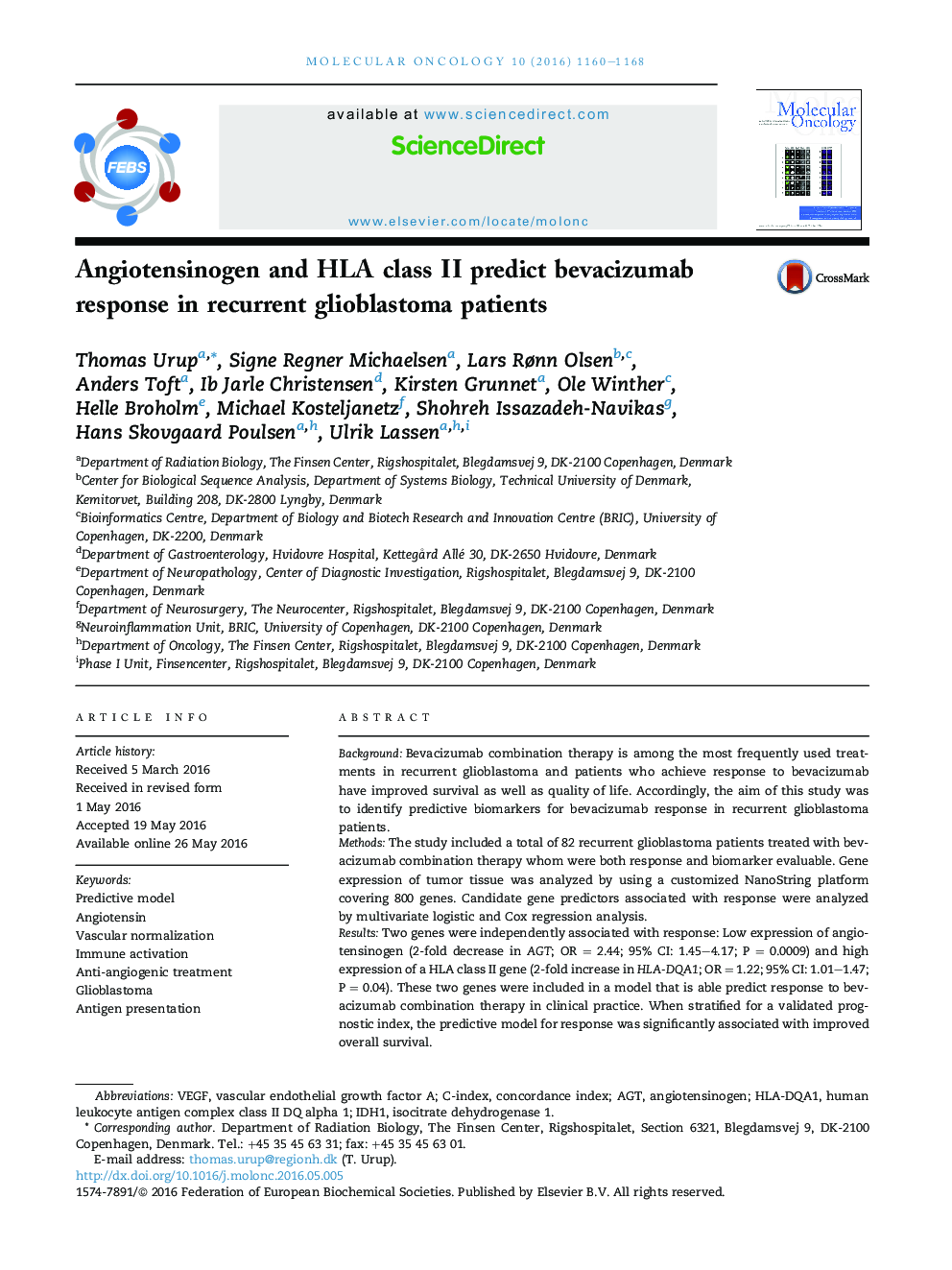| Article ID | Journal | Published Year | Pages | File Type |
|---|---|---|---|---|
| 5528628 | Molecular Oncology | 2016 | 9 Pages |
â¢Recurrent glioblastoma patients treated with bevacizumab combination therapy were included in the study.â¢Gene expression profiling of tumor tissue was performed by a customized NanoString platform covering 800 genes.â¢Expression of angiotensinogen and HLA class II genes were identified as independent predictors for bevacizumab response.â¢The two genes were included in a predictive model for response.â¢The predictive model, if validated, can be used to identify patients benefitting from bevacizumab combination therapy.
BackgroundBevacizumab combination therapy is among the most frequently used treatments in recurrent glioblastoma and patients who achieve response to bevacizumab have improved survival as well as quality of life. Accordingly, the aim of this study was to identify predictive biomarkers for bevacizumab response in recurrent glioblastoma patients.MethodsThe study included a total of 82 recurrent glioblastoma patients treated with bevacizumab combination therapy whom were both response and biomarker evaluable. Gene expression of tumor tissue was analyzed by using a customized NanoString platform covering 800 genes. Candidate gene predictors associated with response were analyzed by multivariate logistic and Cox regression analysis.ResultsTwo genes were independently associated with response: Low expression of angiotensinogen (2-fold decrease in AGT; ORÂ =Â 2.44; 95% CI: 1.45-4.17; PÂ =Â 0.0009) and high expression of a HLA class II gene (2-fold increase in HLA-DQA1; ORÂ =Â 1.22; 95% CI: 1.01-1.47; PÂ =Â 0.04). These two genes were included in a model that is able predict response to bevacizumab combination therapy in clinical practice. When stratified for a validated prognostic index, the predictive model for response was significantly associated with improved overall survival.ConclusionTwo genes (low angiotensinogen and high HLA-class II expression) were predictive for bevacizumab response and were included in a predictive model for response. This model can be used in clinical practice to identify patients who will benefit from bevacizumab combination therapy.
